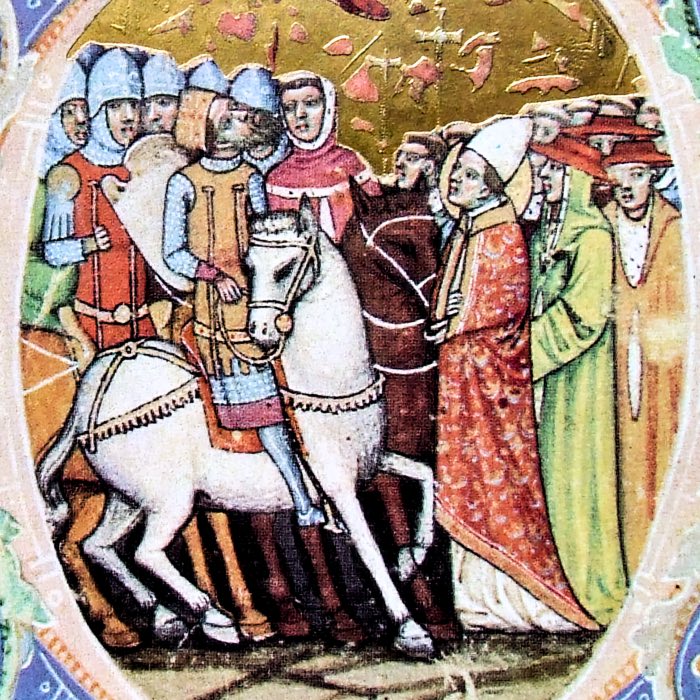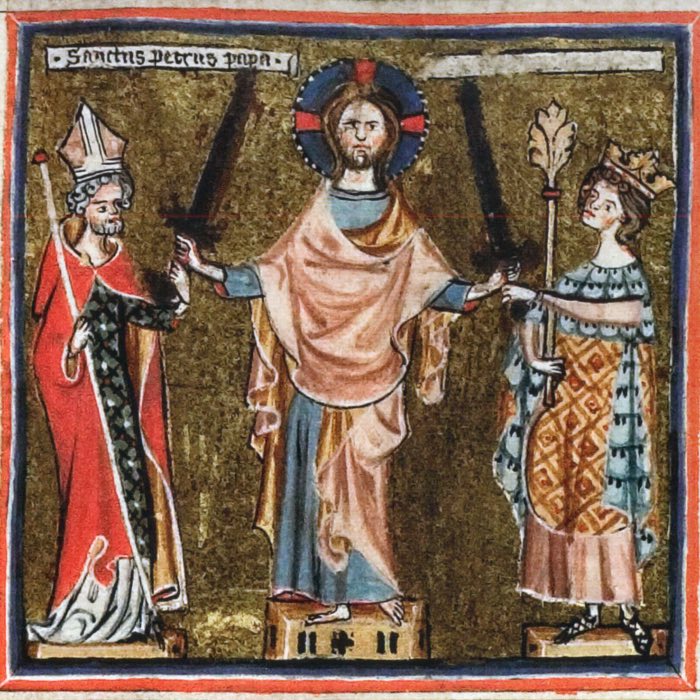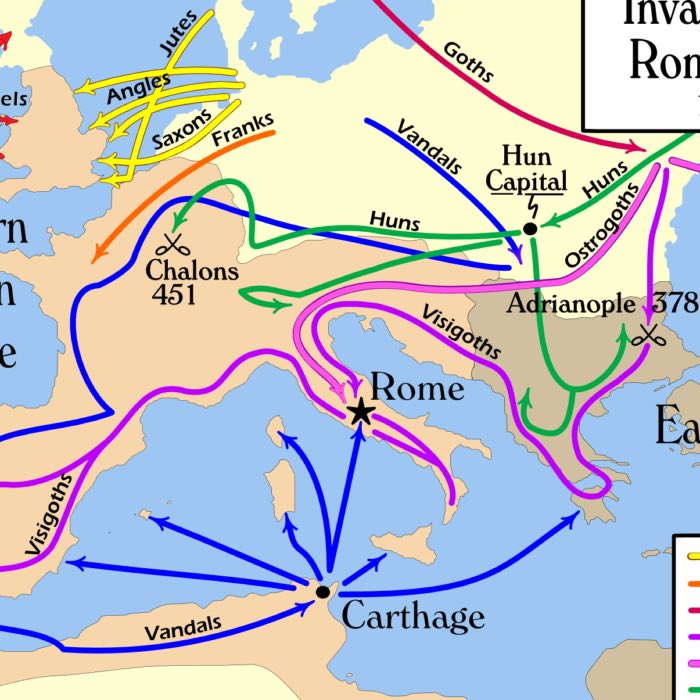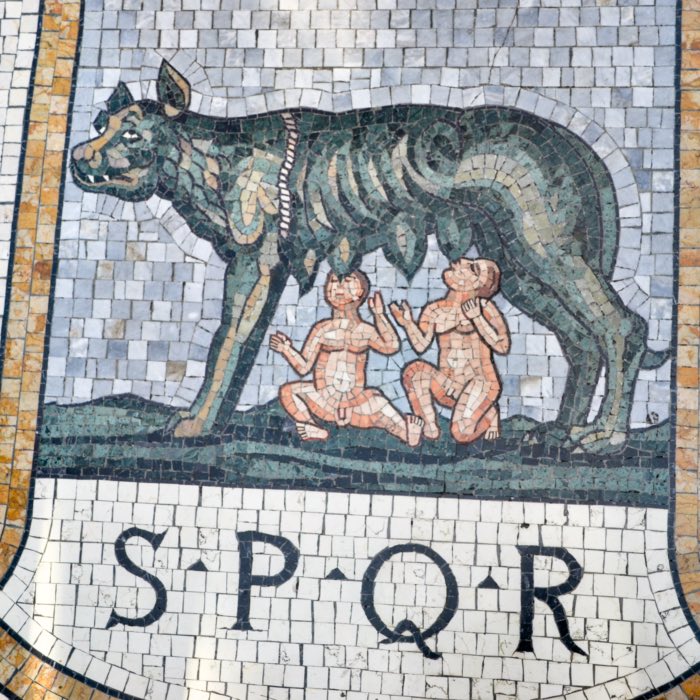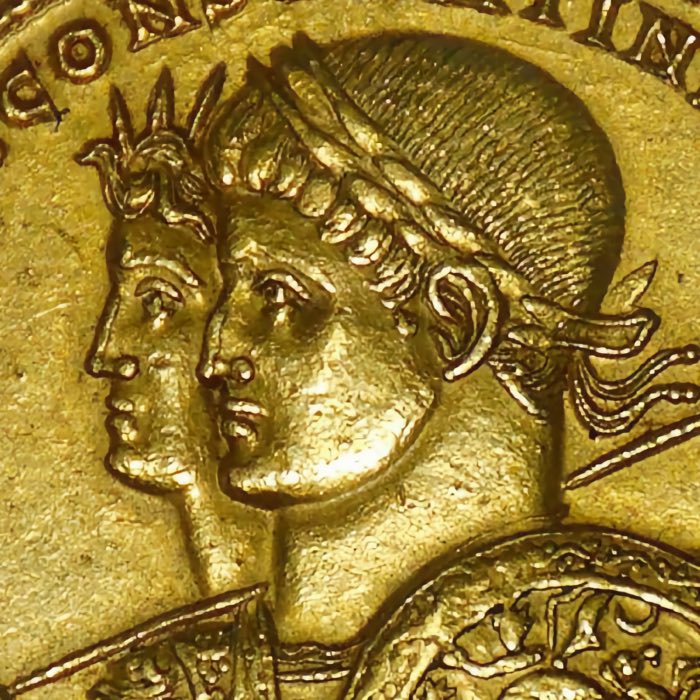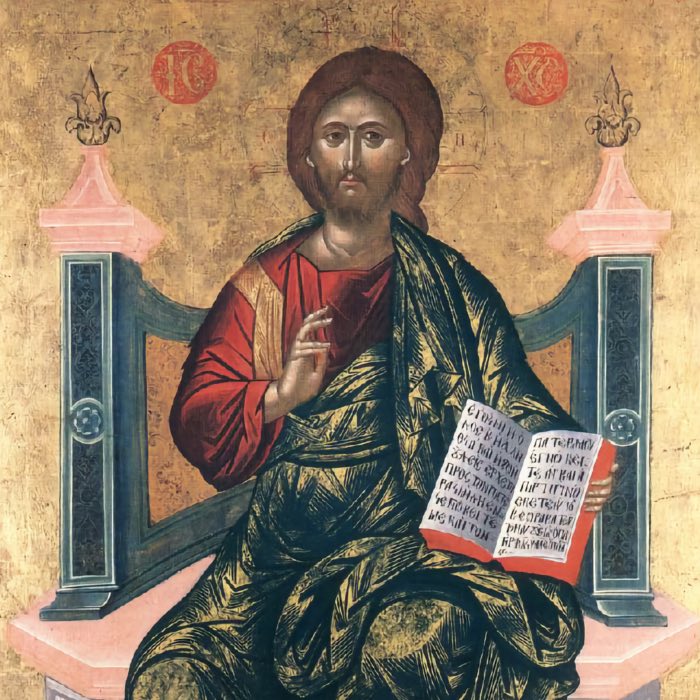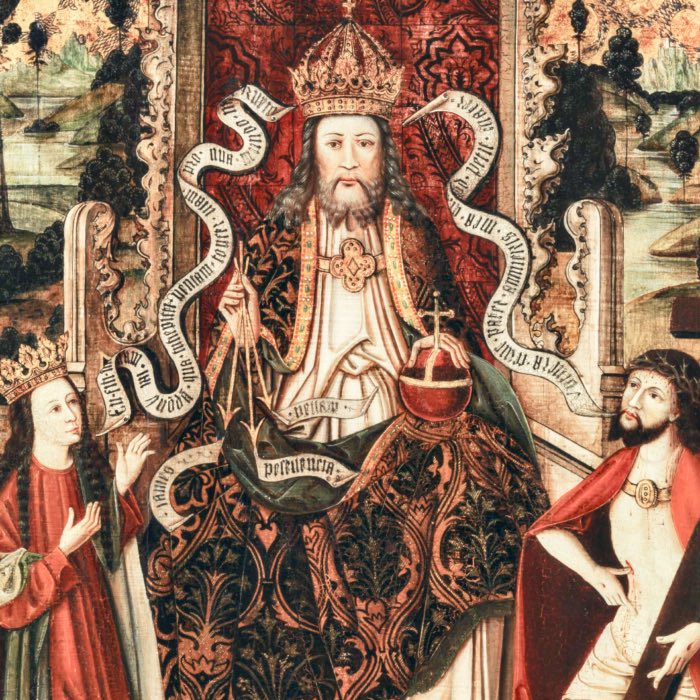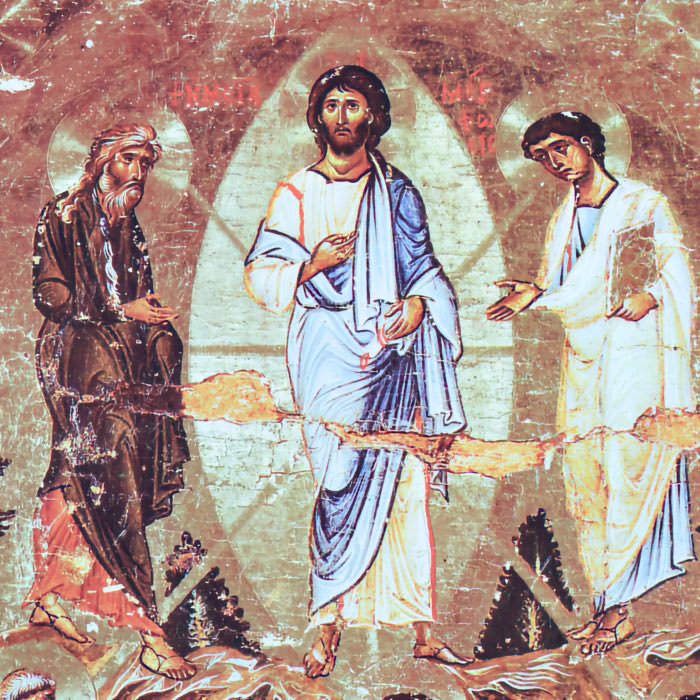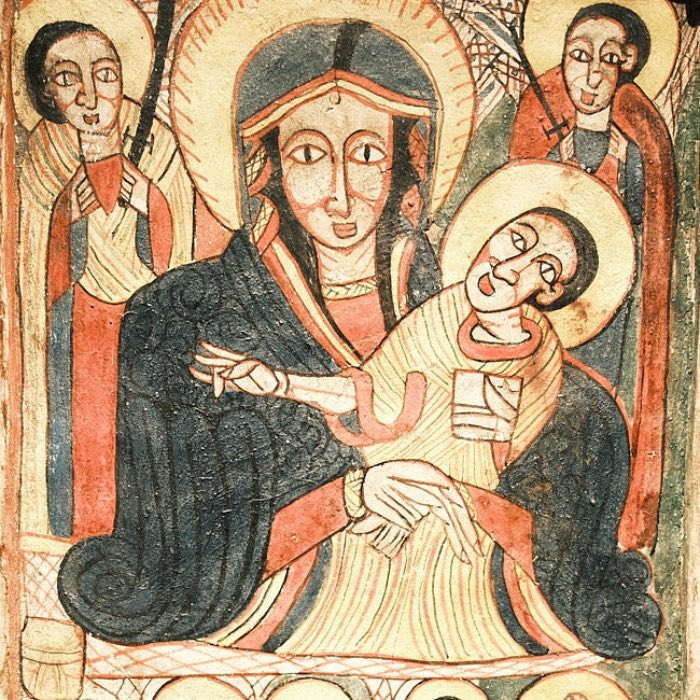Weekend Stories
I enjoy going exploring on weekends (mostly). Here is a collection of stories and photos I gather along the way. All posts are CC BY-NC-SA licensed unless otherwise stated. Feel free to share, remix, and adapt the content as long as you give appropriate credit and distribute your contributions under the same license.
diary · tags · RSS · Mastodon · flickr · simple view · grid view · page 20/52
Pope Leo I: The architect of papal primacy and the foundations of Roman Christianity
Pope Leo I, known as Leo the Great (r. 440–461 CE), played a transformative role in shaping the self-identity of the Catholic Church and the role of the papacy. His pontificate came at a pivotal moment in the history of Christianity, as the Roman Empire faced profound crises, both internal and external. Leo’s theological contributions, political actions, and strategic emphasis on the centrality of the Bishop of Rome not only elevated the papacy’s authority but also laid the groundwork for the institutional Church’s consolidation of power. This post examines how Leo’s assertions of temporal and spiritual authority, his theological framing of Peter and Paul, and his role in defining Roman Christianity set the stage for the papacy’s influence and the Church’s evolving relationship with political power.
How the Pope in Rome became the arbiter of imperial legitimacy
The shift from the Roman Senate to the Pope in Rome as the arbiter of imperial legitimacy reflects a profound transformation in the political and spiritual dynamics of Europe. This evolution unfolded over centuries, shaped by the fall of the Western Roman Empire, the reorganization of power in the post-Roman world, and the eventual fusion of Christian and imperial authority under Charlemagne. In this post, we explore the circumstances under which the Pope in Rome assumed the role of crowning emperors, the status of imperial authority during the period between the fall of Rome and Charlemagne, and the fate of emperors after Charlemagne’s coronation.
The fall of the Western Roman Empire and the role of Christianity during the Migration Period
The collapse of the Western Roman Empire in 476 CE and the subsequent migration and settlement of Germanic and Gothic peoples marked a transformative period in European history. While these events often evoke images of chaos and decline, they also created fertile conditions for the spread of Christianity. Far from being a passive beneficiary, Christianity actively adapted to and shaped the political and cultural dynamics of the post-Roman world. The religion’s message, institutional flexibility, and ability to integrate with existing social and political structures enabled it to thrive among the migrating peoples, ultimately becoming the unifying spiritual framework of medieval Europe. This post examines the relationship between the migration of peoples, the fall of the Western empire, and the spread of Christianity, focusing on its adoption by Germanic and Gothic kings and their inhabitants, culminating in Charlemagne’s Christian empire. We explore how the disruptions of Late Antiquity contributed to Christianity’s ascendancy as both a religious and political force.
How the Roman Empire laid the foundations for Western civilization
The Roman Empire stands as one of the most influential civilizations in history, leaving a profound legacy that continues to shape modern society. From groundbreaking innovations in infrastructure and engineering to advancements in governance, education, and science, the Romans demonstrated an unparalleled ability to adapt and expand upon the knowledge of other cultures. Their achievements not only transformed the ancient world but also laid critical foundations for the development of Western civilization. In this post, we explore the civilizational and scientific developments introduced or disseminated by the Romans, whether original inventions, adaptations, or further enhancements, showcasing how their contributions have endured through time.
The destruction of the Serapeum in Alexandria in 391 CE: Christianity’s shift from persecuted to persecutor
The destruction of the Serapeum in Alexandria in 391 CE stands as one of the most emblematic events of Late Antiquity, symbolizing the dramatic transformation of Christianity from a persecuted minority to an institution wielding the power of the Roman state. This episode not only marked the decline of pagan religious practices in Alexandria but also reflected the broader social, political, and theological shifts that had accompanied the rise of Christianity as the dominant religion of the Roman Empire. The destruction of this magnificent temple dedicated to the Greco-Egyptian deity Serapis offers profound insights into the dynamics of religious conflict, the role of Church authorities, and the consequences of imperial policies aimed at religious consolidation.
The Constantinian Turn: Myth, reality, and its implications for Christianity
The ‘Constantinian Turn’ refers to the moment when Emperor Constantine the Great supposedly converted to Christianity and ushered in a new era of state-sponsored Christian dominance. This event is often portrayed as the turning point when Christianity transitioned from a persecuted minority religion to the dominant faith of the Roman Empire. However, the historicity of Constantine’s dramatic conversion story — centered on the Battle of the Milvian Bridge (312) and his subsequent vision of the cross — has been increasingly scrutinized by modern scholars. In this post, we examine the current state of research regarding the alleged Constantinian Turn, highlighting discrepancies between archaeological evidence and church chronicles. We also explore what this event, whether historically accurate or not, reveals about the Church’s evolution, particularly its association with imperial power, violence, and values that contradict the very core teachings of Christianity.
Is Christianity the most engineered religion in history?
The question in the title of this post is of course ironic. Every religion is a construct that evolves over time, adapting to the cultural, social, and political circumstances of its adherents. Religions are shaped by their historical contexts, assimilating ideas and practices to remain relevant. However, Christianity stands out for its systematic appropriation of Greco-Roman philosophical concepts and Jewish traditions to form a comprehensive theological framework. In this post, we (provocatively) explore how Christianity, often perceived as a divine revelation, is deeply rooted in Greco-Roman philosophy and Jewish apocalyptic ideas. We further examine which elements of Christian theology are uniquely Jewish or Christian, contrasting them with their Greco-Roman counterparts.
From YHWH to God: How Greek philosophy shaped Jewish and Christian perception of the Absolute
The transformation of the concept of God in both Judaism and Christianity is one of the most profound developments in religious history. From the anthropomorphic and personal YHWH of the Hebrew Bible to the abstract, infinite, and ineffable deity central to Christian theology and later Rabbinic Judaism, this evolution was heavily influenced by Greek philosophy. Particularly during the Hellenistic period and beyond, ideas from Platonism, Stoicism, and Neoplatonism provided a conceptual framework that reshaped the understanding of divinity in both traditions. In this post, we explore how Greek philosophical thought transformed the perception of God in Judaism and Christianity, with emphasis on their shared roots and divergent developments.
Theosis: An alternative view of hell, evil, and salvation in Eastern Orthodoxy
Eastern Orthodox Christianity presents a unique theological perspective that diverges in significant ways from Western Christian traditions. Among these differences are the understanding of hell, evil, and the ultimate purpose of human life. While the Western Church often conceptualizes hell as a place of punitive suffering and views salvation as a juridical resolution to sin, Eastern Orthodoxy frames these ideas within a more relational and mystical context, emphasizing theosis — the union of humanity with the divine. In this post, we explore these theological differences by focusing on the Orthodox views of hell, evil, and the concept of theosis as an transformative process.
The Ethiopian Orthodox Tewahedo Church
The Ethiopian Orthodox Tewahedo Church is one of the oldest Christian traditions in the world, with roots that trace back to the early centuries of Christianity. As the largest of the Oriental Orthodox Churches, it has played a pivotal role in the religious, cultural, and political life of Ethiopia. Its rich liturgical traditions, distinctive theological perspectives, and unique history reflect a deeply embedded Christian heritage shaped by both local and global influences. When I recently visited Frankfurt, I had the opportunity to explore an exhibition in the Icon Museum showcasing the artistic and spiritual treasures of the Ethiopian Orthodox Tewahedo Church. I thought, therefore, it would be fitting to write about the history and significance of this ancient Christian tradition, also as an example of the vast diversity within early Christianity.
